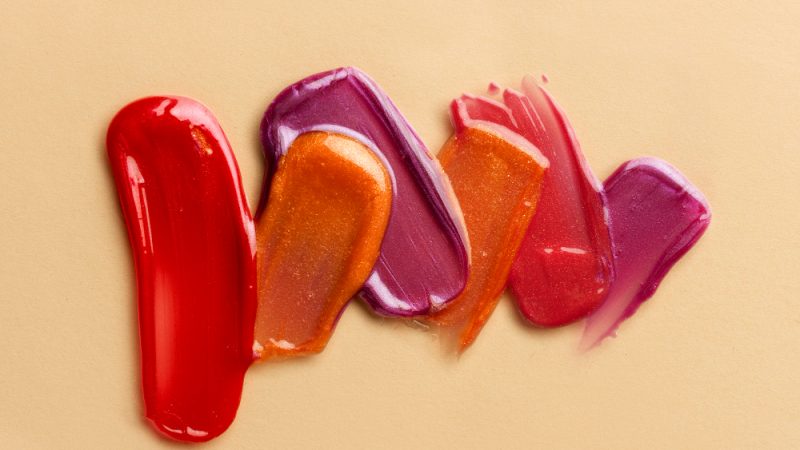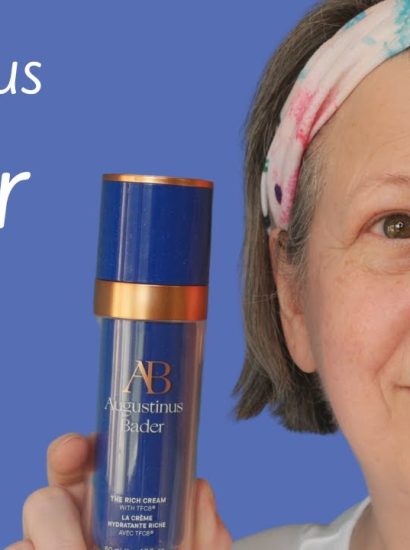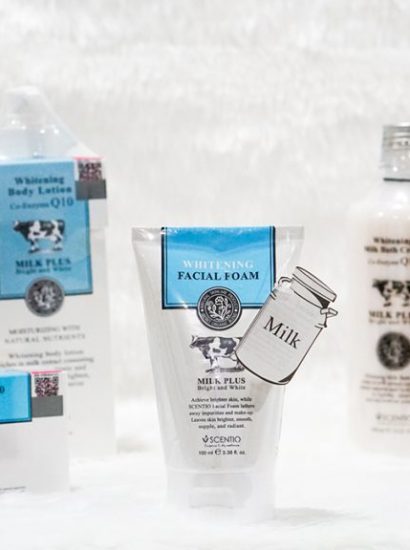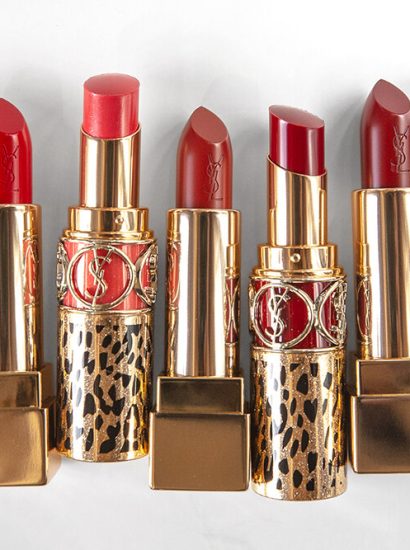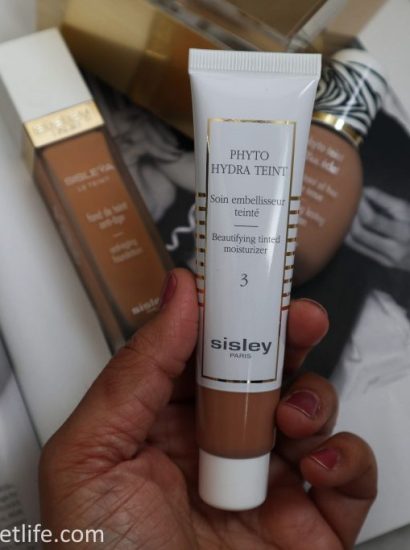Understanding the ingredients in your skincare products, especially lip creams, is crucial for maintaining healthy, hydrated lips. The delicate skin on your lips requires special care, and using the right ingredients can make a significant difference. This comprehensive guide will help you navigate the complex world of lip cream ingredients, highlighting what to look for and what to avoid.
Lip Cream:Hyaluronic Acid-The Ultimate Hydrator
Hyaluronic acid is a superstar ingredient in the skincare world, and for good reason. It is a naturally occurring molecule in the body that has the incredible ability to retain moisture. In lip creams, hyaluronic acid acts as a powerful hydrator, keeping your lips plump and moisturised. The benefits of hyaluronic acid include deep hydration, as it can hold up to 1,000 times its weight in water, making it one of the most effective moisturising agents available. Additionally, it provides a plumping effect by drawing moisture into the skin, smoothing out fine lines and giving lips a fuller appearance. Its hydrating qualities also aid in the repair of chapped or cracked lips. When shopping for lip creams, look for products that list hyaluronic acid near the top of their ingredient list to ensure you are getting an effective dose.
Lip Cream:Shea Butter-Nature’s Moisturiser
Shea butter is a natural fat extracted from the nuts of the shea tree, commonly found in Africa. It is renowned for its moisturising and healing properties, making it an excellent ingredient in lip creams. The benefits of shea butter include intense moisturization, as it is rich in fatty acids and vitamins that deeply nourish and hydrate the lips. It also has anti-inflammatory properties, helping to soothe irritated skin, making it ideal for sensitive or chapped lips. Additionally, shea butter contains vitamins A and E, which provide antioxidant protection, safeguarding the lips from environmental damage. When selecting a lip cream, choose products that feature shea butter for its ability to provide lasting hydration and protection.
Beeswax: A Natural Protective Barrier
Beeswax is a natural substance produced by honeybees. It is commonly used in lip balms and creams for its ability to create a protective barrier on the skin. The benefits of beeswax include moisture retention, as it forms a barrier that helps to lock in moisture, preventing lips from becoming dry and chapped. It also has mild antibacterial properties, which can help protect lips from infections. Moreover, beeswax soothes and conditions the skin, making lips feel soft and smooth. For long-lasting protection and moisture retention, look for lip creams that contain beeswax.
Vitamin E: The Antioxidant Powerhouse
Vitamin E is a potent antioxidant that plays a crucial role in protecting and repairing the skin. In lip creams, vitamin E helps to maintain healthy, hydrated lips. The benefits of vitamin E include protection from free radicals, as it helps to neutralise harmful free radicals that can damage the skin. It also has moisturising properties, helping to maintain the skin’s natural moisture balance, preventing dryness. Additionally, vitamin E supports the healing process of damaged skin, making it beneficial for chapped or cracked lips. Ensure your lip cream contains vitamin E to benefit from its protective and healing properties.
Petroleum Jelly: Pros and Cons
Petroleum jelly, also known as petrolatum, is a common ingredient in many skincare products, including lip creams. It is a byproduct of the oil refining process and is known for its occlusive properties. The pros of petroleum jelly include its effectiveness as a moisture barrier, as it forms a protective layer on the skin, sealing in moisture and preventing water loss. It also provides quick relief for dry, chapped lips. However, there are cons to consider, such as the potential for contaminants if petroleum jelly is not properly refined. Additionally, unlike natural oils and butters, petroleum jelly does not provide additional nutrients to the skin. If you choose a lip cream with petroleum jelly, ensure it is of high quality and thoroughly refined to avoid potential contaminants.
Parabens: The Controversial Preservative
Parabens are synthetic preservatives commonly used in cosmetics to prevent the growth of bacteria and mould. However, their safety has been a topic of controversy. Concerns about parabens include their potential to disrupt hormonal balance, as they can mimic oestrogen in the body. Additionally, some individuals may experience skin irritation or allergic reactions to parabens. Given the potential risks, it is advisable to avoid lip creams containing parabens. Look for products that use alternative preservatives like natural extracts or phenoxyethanol.
Artificial Fragrances: Hidden Dangers
Artificial fragrances are often added to cosmetics to enhance their scent. However, these synthetic compounds can pose several risks. Issues with artificial fragrances include the potential for allergic reactions, irritation, or sensitivity, especially on the delicate skin of the lips. Moreover, the term “fragrance” can encompass a wide range of chemicals, many of which are not disclosed on the ingredient list. Opt for fragrance-free lip creams or those that use natural essential oils for a safer alternative.
Lanolin: Beneficial or Irritating?
Lanolin is a natural substance derived from sheep’s wool. It is commonly used in skincare products for its moisturising properties. The benefits of lanolin include intensive moisturization, as it is an excellent emollient that helps to soften and hydrate the skin. It also aids in the healing of dry, cracked skin. However, there are potential downsides, such as the possibility of allergic reactions, as some individuals may be allergic to lanolin, experiencing irritation or rashes. Additionally, as an animal byproduct, lanolin may not be suitable for those who prefer vegan skincare products. If you are not allergic and do not mind animal-derived ingredients, lanolin can be highly beneficial for lip care.
Alcohols: Drying Agents to Avoid
Certain types of alcohols, such as ethanol or isopropyl alcohol, are often used in cosmetics for their quick-drying properties. However, these can be detrimental to the lips. Issues with drying alcohols include dehydration, as they can strip the skin of its natural moisture, leading to dryness and irritation. They can also cause stinging or burning sensations, especially on sensitive or chapped lips. Avoid lip creams that list drying alcohols among their ingredients. Instead, look for products that use fatty alcohols like cetyl alcohol or stearyl alcohol, which are moisturising and beneficial for the skin.
Natural Oils: The Good and the Bad
Natural oils are commonly used in lip creams for their moisturising and nourishing properties. However, not all oils are created equal. The benefits of good natural oils include coconut oil, which is rich in fatty acids and has antibacterial properties, jojoba oil, which is similar to the skin’s natural sebum and provides long-lasting hydration, and almond oil, which is high in vitamins A and E and soothes and nourishes the skin. However, some oils can be problematic, such as citrus oils like lemon or orange, which can be phototoxic, making the skin more sensitive to sunlight, and certain essential oils that can cause irritation or allergic reactions. When choosing a lip cream, opt for those with beneficial natural oils and avoid those that contain potentially irritating or phototoxic oils.
Conclusion
Choosing the right lip cream ingredients is essential for maintaining healthy, hydrated lips. Ingredients like hyaluronic acid, shea butter, beeswax, and vitamin E offer significant benefits and should be sought after in lip creams. On the other hand, it is wise to avoid products containing parabens, artificial fragrances, drying alcohols, and low-quality petroleum jelly. By understanding the effects of different ingredients, you can make informed decisions and select lip creams that provide the best care for your lips. Always read the ingredient list carefully and opt for products with high-quality, natural ingredients to keep your lips soft, smooth, and healthy.
FAQs
Q: Why should I avoid parabens in my lip cream?
Parabens are preservatives that can cause allergic reactions and have been linked to potential health risks, including hormonal disruption. It’s safer to choose products with alternative preservatives.
Q: Are all natural oils safe for lip creams?
While many natural oils are beneficial, some can cause allergic reactions or be too heavy for the delicate skin on your lips. Oils like coconut, jojoba, and almond are generally safe, but avoid phototoxic or highly sensitising oils.
Q: What is the best ingredient for extremely dry lips?
Hyaluronic acid is excellent for hydrating extremely dry lips due to its ability to retain moisture. Shea butter and beeswax are also highly effective for providing deep hydration and creating a protective barrier.
Q: Can I use regular moisturisers on my lips?
It’s better to use products specifically designed for lips, as they contain ingredients suited for the delicate skin on your lips. Regular moisturisers may contain ingredients that are not suitable for the lips or could be harmful if ingested.
Q: How can I tell if a lip cream ingredient is harmful?
Research ingredients or consult dermatologists. Avoid products with parabens, artificial fragrances, and drying alcohols. Look for reputable brands that use high-quality, natural ingredients.
Also read: LIP BALM HACKS: 10 TIPS TO KEEP YOUR LIPS HYDRATED

